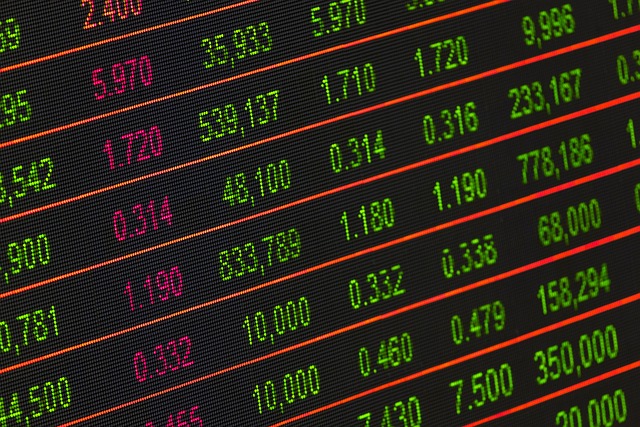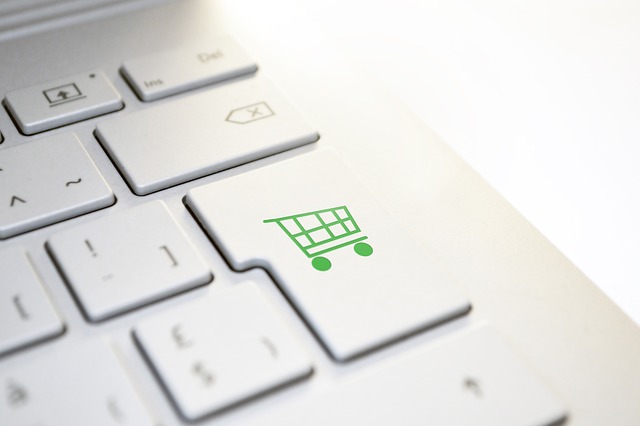The Role of Personal Finance Apps in Achieving Financial Goals
In today’s fast-paced world, managing personal finances effectively has become more crucial than ever. With increasing expenses, mounting debt, and often stagnant wages, people find themselves searching for solutions. This is where personal finance apps come into play, helping individuals navigate their financial journeys toward achieving meaningful financial goals. These digital tools serve as your financial companions, offering insights, budgeting tools, and much more that can empower you to make informed decisions.
Consider the last time you made a significant financial decision. Did you feel prepared? Or were you relying on guesswork? With personal finance apps, users gain clarity and structure. They allow you to set concrete financial goals, track spending, and create budgets tailored to your unique needs. Imagine being able to see each dollar flow in and out in real-time, all at your fingertips! These apps help you visualize where your money goes, revealing spending habits you may not have noticed. If you desire financial freedom, this insight is essential.
Understanding Your Financial Goals
Before diving into personal finance apps, it’s important to grasp the essence of financial goals. These goals vary significantly from person to person. For some, financial goals may include saving for a house, paying off student loans, or building a retirement fund. For others, it might be as simple as ensuring you have enough cash for a holiday or surprising a loved one with a gift. Establishing clear financial goals provides direction and purpose. The more specific you are about your objectives, the better equipped you’ll be to achieve them.
But where do personal finance apps fit into this picture? They effectively bridge the gap between your aspirations and your current financial reality. By using these tools, you gain a tangible method for tracking your progress toward your goals. Many of these apps allow you to set multiple goals, whether short-term or long-term. This flexibility plays a significant role in helping keep your motivation alive. Imagine being able to check your app daily and see how close you are to that dream vacation or your emergency fund. Regular, positive reinforcement is key to staying committed to your financial journey.
Budgeting Made Easy
One of the standout features of personal finance apps is their budgeting capabilities. Gone are the days of spreadsheets filled with complicated formulas. With a few taps on your smartphone, you can create an effortless budget. Personal finance apps often incorporate features that help you categorize your spending — groceries, dining out, entertainment, savings, and more. You can set limits for each category, making it easy to see when you overindulge and when you stick to your plan.
This budgeting capability not only empowers users to make more informed spending decisions, it also promotes accountability. Many apps incorporate alerts and notifications that remind you when you’re nearing your budget limits. This proactive approach prevents overspending while simultaneously encouraging you to think critically about your purchasing decisions. “Do I really need this?” can become an automatic thought as you see your expenses clearly presented. When you align your daily spending with your financial goals, the path to financial freedom becomes clearer.
Tracking Spending and Saving
Tracking spending is another critical aspect of personal finance apps. They allow real-time access to your bank accounts, credit cards, and other financial assets. This integration means you can monitor your transactions instantly without having to manually input every detail. Imagine the time saved! Tracking becomes almost effortless, and you can see your total spending in various categories over time.
Regular tracking reveals trends and patterns in how you spend your money. You may discover that you frequently overspend on subscription services or dining out more than you realize. Recognizing these trends gives you the power to adjust your budget and prioritize your savings more effectively. Many apps encourage you to automate your savings, which can also enhance your financial journey. By creating saving rules that fit your budget, like rounding up purchases to the nearest dollar or saving a certain percentage of your paycheck, you make wealth-building a habit rather than an occasional activity.
Investment Tracking and Management
In addition to budgeting and tracking spending, many personal finance apps now offer investment tracking features. These assist users in managing their investment portfolios and understanding their overall financial landscape. Even for individuals just starting their investment journey, having access to tools that document their asset allocation and performance can significantly aid in decision-making.
Imagine wanting to diversify your investment portfolio but not knowing where to start. The right app can present advice on asset allocation and provide performance metrics. For example, you might find that your investments in high-risk stocks could use more support from safer options or bonds. Ultimately, these insights encourage smarter investing, which is an essential aspect of achieving long-term financial goals.
Building an Emergency Fund
One of the fundamental pillars of financial stability is having an emergency fund. Personal finance apps help you create a clear path towards building this essential safety net. Users can set specific goals regarding how much they wish to save. Many people aim for three to six months’ worth of living expenses. With the right app, users can easily track how much they’ve set aside. Each time you contribute, you visibly see your progress, motivating you to continue saving.
Moreover, the automation features of personal finance apps can facilitate building your emergency fund. You can set up recurring transfers from your checking account to a savings account dedicated to emergencies. This automatic saving ensures that you contribute regularly without needing to think about it actively. Gradually, you can watch your fund grow, instilling a greater sense of security. This foundational element allows you to navigate life’s challenges with more resilience. You’ll feel financially prepared for unexpected events, whether it’s a medical emergency or a car repair that can’t wait.
Debt Management
Debt management is perhaps one of the most daunting aspects of personal finance for many individuals. Fortunately, personal finance apps provide tools to create a debt payoff plan tailored to your specific situation. They help users understand different strategies, such as the snowball or avalanche method. By inputting your various debts, including credit cards, loans, and mortgages, these apps can help you set a specific timeline for paying them off.
The visualization aspect cannot be overstated. Personal finance apps often present debt information in an engaging manner, showing you how much you’ve paid down and what remains. When you track your progress, it becomes evident when you reach significant milestones, like paying off a credit card. This clarity can serve as a motivating factor, making each achieved goal feel like a victory. And let’s be honest; every small win adds up to something larger.
Setting Up Reminders for Payments
Staying on top of due dates for bills can be a hassle. Missing payment deadlines can result in late fees and negatively affect your credit score. Personal finance apps allow you to set automatic reminders for various bills. You can receive notifications a few days before each due date, ensuring you never forget a payment again.
Additionally, these reminders prevent the stress of last-minute scrambles to gather funds or the anxiety that comes with worrying about missed payments. By taking the guesswork out of your financial obligations, these apps enable you to automate this aspect of your financial life. You’ll feel much more in control of your financial situation, allowing you to focus on your goals, like saving or investing.
Finding Educational Resources and Community Support
We all know that knowledge is power, particularly in the realm of personal finance. Many personal finance apps incorporate resources aimed at educating users on financial concepts. They might offer articles, videos, or interactive activities designed to enhance your understanding of budgeting, investing, and managing debt.
Moreover, some apps even include community forums or social aspects that connect you with other users. This type of community can serve as a unique platform for sharing experiences, advice, and strategies. Engaging with others who have similar financial goals creates a sense of camaraderie. It’s empowering to share challenges and victories in an accepting space where financial growth is prioritized. Through these connections, users can learn from each other and stay accountable in their financial journeys.
Choosing the Right Personal Finance App
With an abundance of personal finance apps available, how do you choose one that best suits your needs? Begin by considering what specific features you find most important. Do you primarily need budgeting support or investment tracking? Some apps excel in certain areas, while others aim for an all-in-one approach. Additionally, pay attention to user reviews and ratings, as these provide insight into how well an app works in real-world scenarios.
Another aspect to consider is connectivity. Ensure that your chosen app integrates seamlessly with your bank accounts and investment platforms. Furthermore, look for user-friendly interfaces that simplify navigation. Ultimately, you want a tool that feels approachable and makes managing your personal finances less daunting. Once you find an app that resonates with you, commit to using it regularly. Consistency is key for maximizing the benefits these tools offer.
The Impact of Personal Finance Apps on Financial Freedom
Achieving financial freedom doesn’t happen overnight, but personal finance apps significantly contribute to this journey. By streamlining budgeting, tracking expenses, and encouraging savings and investment practices, these digital tools pave a more accessible pathway toward financial independence. They create an atmosphere conducive to positive financial habits and unwavering motivation.
Imagine your life without financial stressors, where you feel confident in your finances and can plan for the future. This vision can become a reality. Financial freedom empowers individuals to make choices based on their desires rather than their monetary limitations. By leveraging personal finance apps, you take control of your financial destiny and work toward a life where money serves you instead of the other way around.
FAQs
1. What are personal finance apps?
Personal finance apps are digital tools designed to help users manage their financial activities, including budgeting, tracking expenses, and investment management. They provide insights into spending habits and help you work toward financial goals.
2. How can personal finance apps help me achieve financial goals?
These apps enable you to set specific financial goals and track your progress. They provide budgeting tools, spending insights, and personalized recommendations, all of which contribute to achieving your long-term financial aspirations.
3. Are personal finance apps secure?
Most reputable personal finance apps employ strong security measures, including encryption and two-factor authentication. However, it is crucial to research and choose apps with a good reputation to ensure your financial data remains safe.
4. Can I automate savings and payments with personal finance apps?
Yes! Many personal finance apps allow you to set up automated savings transfers and payment reminders, helping you manage your finances more effortlessly and ensuring you never miss a payment.
5. Are personal finance apps suitable for beginners?
Absolutely! Many personal finance apps are user-friendly and come equipped with educational resources, making them ideal for individuals new to managing their finances. They can help you establish healthy financial habits from the start.



